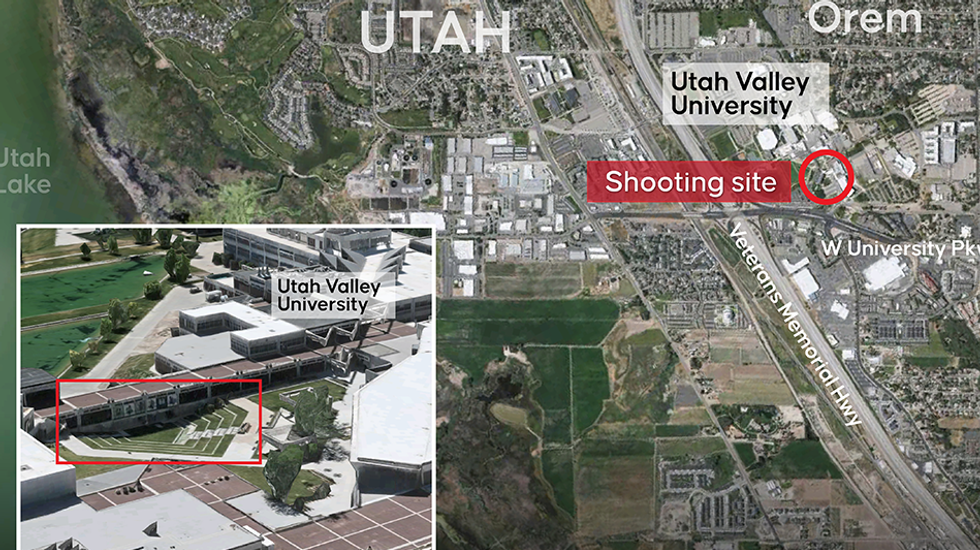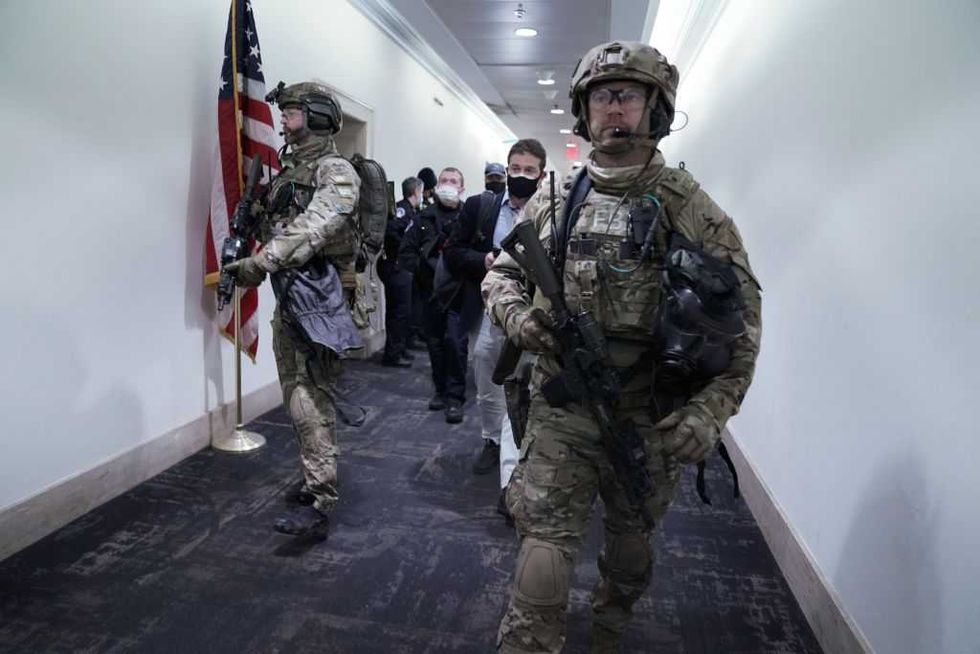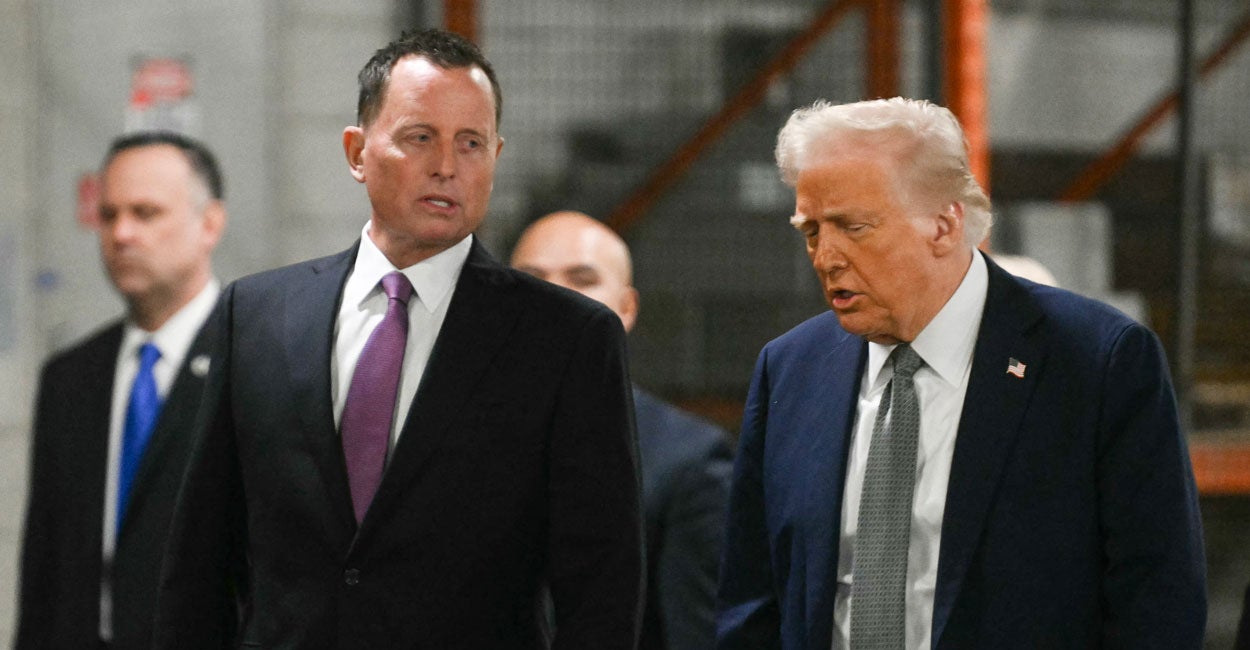Prison First, Deportation Later: Trump Revives Criminal Penalties For Border Jumpers

DEL RIO, Texas – Nine illegal aliens from Central America, Mexico, including one from Poland, filed together into a federal courtroom in this border town one recent April day to face an unpleasant new kind of consequence for the common crime they all committed.
Individually, each one illegally crossed the southern border into U.S. Border Patrol’s Del Rio Sector in February and March and happened to get caught at just the wrong time in presidential history. Just a few months earlier, under president Joe Biden, Border Patrol was under orders to reward millions who committed the federal crime of illegal entry by stamping them through a turnstile into interior America on their own recognizance. Donald Trump, however, issued new orders when he replaced Biden, to detain and deport them all. These nine tried their luck and lost.
Now they stand shoulder-to-shoulder for a collective federal court sentencing, interpretation devices plugged into ears, wearing orange jail jumpsuits and rattling wrist cuffs connected to leg iron chains.
Represented by seven criminal defense attorneys, with U.S. Marshals on hand to deter trouble, each of the nine pled guilty to a single misdemeanor charge of improper entry before U.S. Magistrate Judge Matthew H. Watters and awaited sentencing.
With little variation, each stepped before Judge Watters one by one and repeated what the first defendant told the judge, heads usually bowed in apparent contrition:
“I apologize for illegally entering the United States. I promise I will not be back.”
Judge Watters meted out nine jail sentences ranging from a low of 30 days to a high of 105 days, applying credit for time already served. Before the group was led back out to a waiting transport bus, Judge Watters issued a stern warning that encapsulates the higher purpose of not just this proceeding but of a growing number just like it across the nation’s federal courts. “There will be much more significant consequences if you return,” Judge Watters warned.

Illegal aliens federally charged with illegal entry are loaded into a government transport after their hearings in a Del Rio, Texas federal court. Photo by Todd Bensman
A Rarely Reported New Trump Immigration Policy Spreads
Criminal hearings for illegal border crossings like this are taking place every day with increasing frequency in the Del Rio courthouse now, as well as in many other federal courtrooms across the country.
The prosecutions, featuring progressive prison sentences, are part of fast-spreading nationwide prosecution policy that forms an important prong in the Trump administration’s broader effort to end the historic levels of mass illegal crossings the past four years and, the hard part, to keep them low.
Mandatory 100% detentions and deportations of all apprehended illegal crossers have already driven Border Patrol encounters to historic lows for the United States. And it didn’t take long. Under Joe Biden encounters hit over 106,000 in October of 2024, most of them released, but after Trump took office those numbers dropped to 8,326 in February of 2025 and then fell further in March to 6,995 — all detained and put in removal proceedings.
The administration, however, doesn’t see detention and deportation as quite enough to guard against a mass migration resurgence, a senior Trump Department of Homeland Security official with direct knowledge of the prosecution policy told me.
Now, federal immigration officers and U.S. attorneys are under orders to prosecute as many single adult illegal immigrants as possible using largely shelved federal laws that progressively penalize repeat illegal entries and which, depending on how many times an alien recommits, can bring long, hefty prison terms of 2-, 10- and even 20-years in prison.
To make sure deportees stay gone.
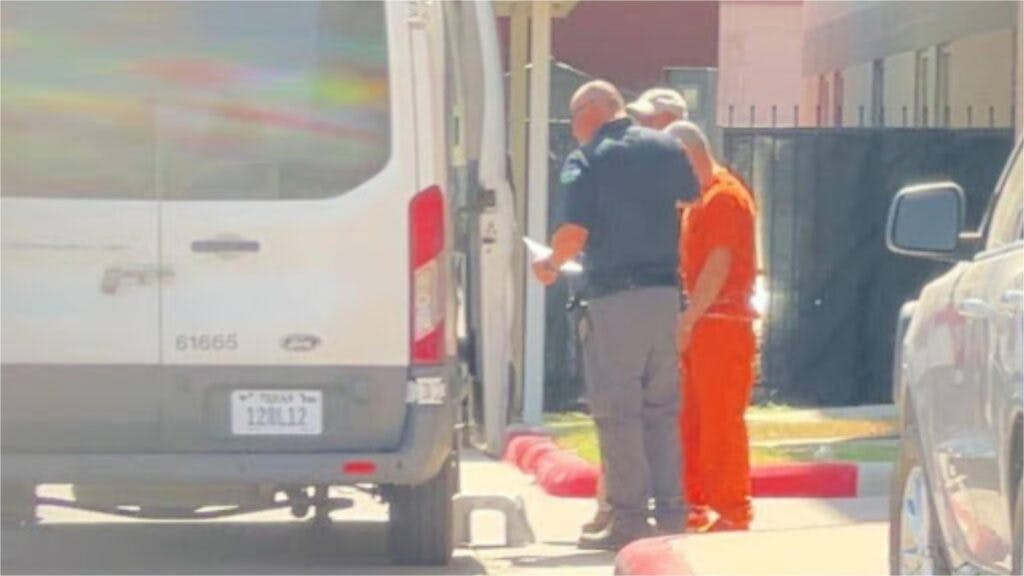
U.S. Marshals at the federal courthouse in Del Rio, Texas escort illegal aliens from a court hearing to a federal jail in April 2025. Photo by Todd Bensman
“We can’t arrest or deport our way of this,” said the senior Trump official, who was not authorized to speak and requested anonymity. “It has got to be a bigger combination of tools that we know has a real overall deterrence effect. If you know the probability of you being apprehended and then prosecuted and then deported, your chances of coming back illegally decrease.”
The official said DHS and the Department of Justice are expanding the prosecution referral policy in federal districts across the United States, including those along both southern and northern land borders, the interior and coastal regions.
DHS officials feel this part of the strategy is so important that federal agents who fail to send criminal referrals and U.S. Attorneys who fail to accept such referrals “will be explaining to headquarters why they aren’t,” the official said.
A spokesperson for the Western District of Texas U.S. Attorney’s Office, which is prosecuting hundreds of cases every week, did not return several phone calls requesting comment.
Delayed Gratification For ‘Mass Deportations’ Explained
If skeptics of Trump’s promises of “mass deportations” are growing impatient at the relatively low number of monthly removals, this program is no doubt responsible for at least some of the delayed gratification. Now, thousands of deportations will only happen after prison terms are served and that can take years.
The initiative is similar to a Bush-era program started in Del Rio Sector known as Operation Streamline. This one, however, goes beyond the Trump 2.0 “Operation Take Back America,” which the DOJ advertises as funneling aliens already convicted of serious non-immigration crimes into line for new illegal border entry charges.
The initiative targets plenty of relatively trouble-free illegal alien border crossers who get caught shortly after their entries. First-time offenders face short jail terms of up to six months on a federal misdemeanor charge of “improper entry by alien” provided under 8 USC 1325 of the Immigration and Naturalization Act. Felonies can be charged under 1325 too, with two-year sentences. All will be deported right after they complete their short sentences.
But that’s just the halfway mark.

Government buses are now needed to transport higher volumes of illegal alien prisoners being prosecuted in federal court in Del Rio, Texas back to their cells in April 2025. Photo by Todd Bensman
Once in this legal carousel, convicted border crossers risk far more punishment if caught trying to cross again and get charged at the next level, under 8 USC 1326, which can draw UP TO 20 years in prison depending on the number of repeat offenses and an individual’s criminal history.
U.S. Attorneys are bringing hundreds of these cases every week, reaching to thousands per month, in the Western District of Texas, Southern District of Texas, District of New Mexico, District of Arizona, Central District of California, Southern District of California.
Trump’s Border Czar Tom Homan can’t quickly add these thousands to his promised monthly deportation quotas because they are trapped in the legal system, sometimes for years. But they’re off American streets.
Several Del Rio, Texas, criminal defense lawyers for the defendants confirmed a definite daily increase in Del Rio court proceedings for both 1325 and 1326 prosecutions over the past month or two. Indeed, after Judge Watters sentenced those nine to relatively short 1325 prison terms, I sat through an initial hearing for 21 immigrants arraigned for the more serious 1326 felony charges. Courthouse employees said the place had become a carousel of daily 1325 and 1326 hearings not seen since the heydays of Operation Streamline.
Attorneys noted that federal prosecutors during the Biden administration did still prosecute some 1325 and 1326 cases after shuttering Operation Streamline in 2021, but that Biden’s DHS would rarely deport after jail time was completed, giving up the process’s central deterrent leverage.
“When Biden was around, they’d release the migrants back into the country,” said Edgar Juarez, one of the criminal defense attorneys representing defendants at the hearings. Success now, he added, is “going to hinge on whether these 1325s are going to be released into the country, or not, after their cases.”
Now, every single 1325 convict is immediately deported after serving jail time, Juarez and others said of the last few months.
The post-conviction deportations project real deterring consequences for many, though not all, said attorney Mike Bagley, who represented defendants in both hearings I attended.
“I think this sends a message that it’s not the same policy as before,” Bagley said of what he sees happening now in court – consistent deportation after convictions. It can pose a powerful deterrent on reentry “if the message gets back to their home country or their home people. They could get up to 20 years. I’ve seen some get 10.”
On the other hand, he said, “sometimes they’re deterred and sometimes not, especially if they have a draw to the U.S. like family.”
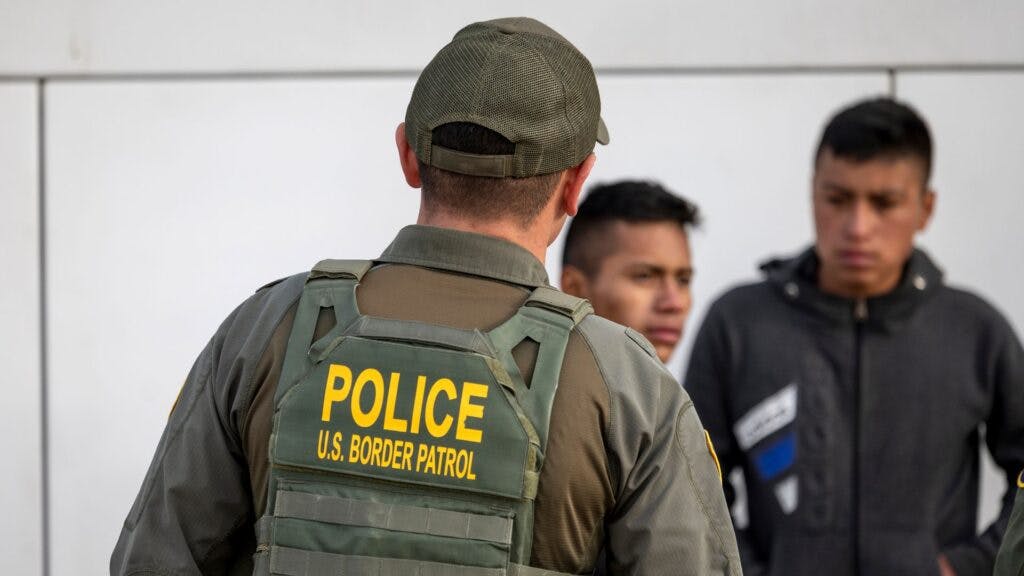
(Photo by John Moore/Getty Images)
A third attorney who asked not to be named said very few of his clients want to cross after their recent legal ordeals.
“The border’s closed down,” he said. “I don’t know why anyone would want to cross now.”
Receiving the message Trump officials are gambling that word of the prosecutions will spread far and wide. The word has penetrated at least parts of northern Mexico.
During a recent trip to Juarez, several immigrants told me they feared trying an illegal border crossing because they’d end up in prison.
“The Americans will put you in jail for two years if they catch you,” a former Venezuelan soldier named Angel told me when I asked why he didn’t want to try an illegal crossing.
The prosecutions, however, only apply to single adults like Angel and not to families, to avoid the political “family separation” firestorm that ensued when the first Trump administration tried prosecuting parents of children, who had to be cared for separately to keep them out of unsafe adult lockups.
Now, parents with children are simply deported with them, the Trump DHS official confirmed. That risk by itself is enough to deter some families.
Jonathan Leonardo Montilla, father of a Venezuelan family of two twin girls I met in Juarez, told me he and his wife still wouldn’t dare risk the smuggling money to try now.
“The Americans would just grab us and deport us,” he lamented. “Now, your president is very tough.”
* * *
Todd Bensman is a Senior National Security Fellow, Center for Immigration Studies and a two-time National Press Club award winner. He is a graduate of the University of Missouri School of Journalism and a 23-year veteran newspaper reporter. He is the author of “America’s Covert Border War,” and “Overrun: How Joe Biden Unleashed the Greatest Border Crisis in U.S. History.”
The views expressed in this piece are those of the author and do not necessarily represent those of The Daily Wire.
Originally Published at Daily Wire, Daily Signal, or The Blaze
What's Your Reaction?
 Like
0
Like
0
 Dislike
0
Dislike
0
 Love
0
Love
0
 Funny
0
Funny
0
 Angry
0
Angry
0
 Sad
0
Sad
0
 Wow
0
Wow
0
































































